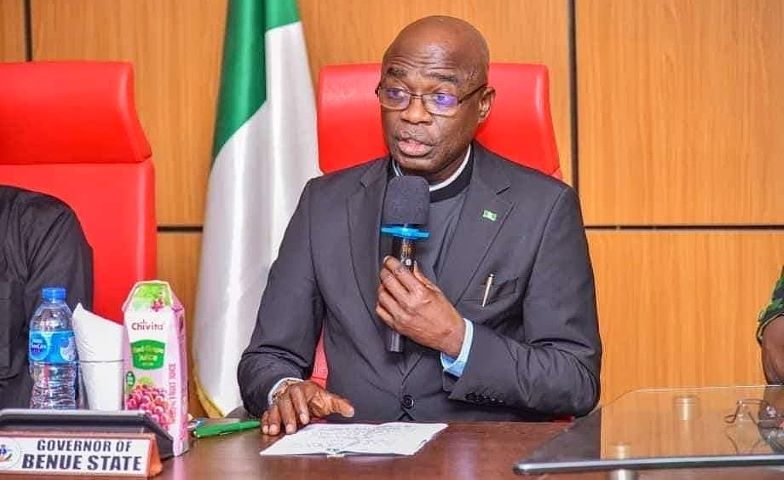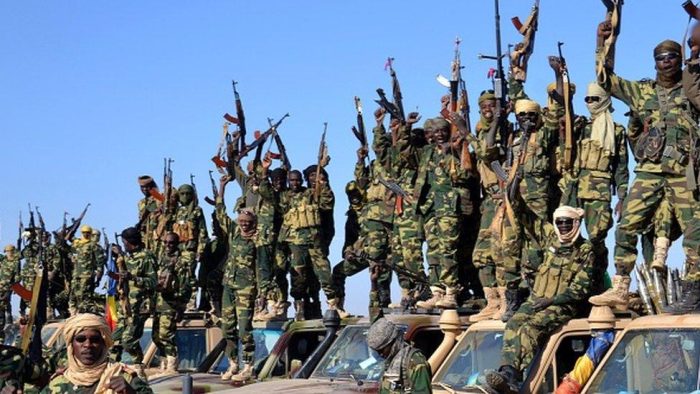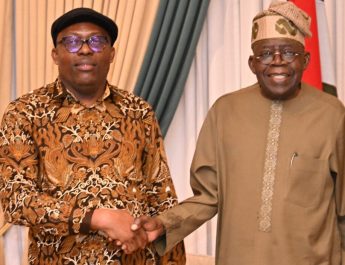As the number of terrorists groups operating in Nigeria keeps swelling, intelligence provided by credible sources suggests that more notorious ganga are attempting to migrate to the country from the Sahel regions, taking advantage of the unmanned spaces at the nation’s land borders
By Our Correspondent
At present, it is alleged that there are over 10 terrorists’ groups operating in different parts of the country, Tentacle’s investigation has revealed. Their major agenda includes land grabbing, genocide, grabbing political power as well as the ultimate aim which is to Islamize the entire Northern region, and if possible, the entire country.
The identified brutal and bestial terrorists’ gsngs include the Fulani herdsmen who have practically rounded up the entire country through their cattle rearing vacation, killing farmers, raping women, kidnapping local people for huge ransom demands and creating panic among local dwellers wherever they find themselves.
Others terrorists’ organisations which are also tacitly, covertly and overtly linked with the herdsmen are the Islamic State of West Africa Province (ISWAP), Boko Haram, Lakurawa, Mahmuda, the bandits among others. In the recent times, the combined attacks by these terror groups, have reduced Nigeria to another Somalia of sorts.

Incidentally, the efforts of the military forces to contain the deadly assaults on daily basis, have failed to yield the expectations of the people.
But while terrorists attacks pound the helpless country as if the military forces have ceased to exist, what may sound a heart-rending story to many citizens especially in the Northern region is the revelation that in the coming days, more militia groups may be migrating to Nigeria through the Nigerian land borders.
Dependable sources hinted that it is the laxity of the Federal Government in handling security matters that had aided the festering of insecurity in the country. A source alleged that the inability of the Federal Government to order the arrest and trial of alleged sponsors of terrorism in country is giving the masterminds the audacity to keep killing innocent civilians in order to dispossess them of their lands and convert captured territories to Islamic provinces.
Credible intelligence revealed that in the near future, other dangerous terrorists’ groups such as the Sahelian Janjaweed, may cross over to Nigeria via the land borders that are poorly manned. The Janjaweed in the Sahel regions of Africa has been operating in countries such as Sudan and Chad. A security source who pleaded anonymous, told this medium that the Janjaweed in the Sahel is more dangerous than the ISWAP and Boko Haram insurgents combined.
According to the expert, should the dreaded Janjaweed terrorists find their foot in Nigeria, the country may collapse because, according to him, the Nigerian military had been overstretched in the war against terrorism to an extent that the military forces may not have the capacity to contain the devilish operations of the Janjaweed group.
Aside the Janjaweed, the source also warned the Federal Government to brace up for a bigger security threat if other groups he identified as the Barbarians which has its root in Niger Republic, as well as another terror group known as the West African Arab Supremacy Front, are not prevented from finding their way to the Africa’s most populous country.
He counseled the Nigerian authorities to strengthen their border surveillance and security, especially at this point in time when there is political and economic crisis ravaging the nation. According to the expert, Nigerian land borders have remained the most porous borders across the continent for decades, which gave rise to the influx of all manners of people and products into the country illegally.
He further alleged that there are thousands of unmanned illegal routes across the land borders anywhere they exist in the country through which unwanted items and people could enter the country illegally. He questioned the sources and routes through which the insurgents and terror groups acquire their dangerous weapons.
“How do you think these insurgents and terrorists acquire their weapons if not through the land borders? Do you think they fly their weapons through the airports? The answer is no.

“Our borders are poorly manned, even when they said they closed the borders. That has remained a big challenge. And until we’re able to secure the land borders, we cannot wipe out terrorism because terrorists migrating from other parts of Africa to Nigeria make use of the land borders.
“Effective border security is what it will take to reduce terrorism in the country drastically”, the source said.
The rate of killings across the country by terrorists is alarming in the recent times. Regrettably, the government of President Bola Tinubu appears to be focusing more on fixing the economy than in securing every part of the country against insurgency, banditry, kidnapping and ransom demands.
Reacting to the worsening security situation under President Tinubu government, a coalition of 86 Civil Society Organizations (CSOs), identified simply as, “Nigeria Mourns”, staged a one-day national mourning in Abuja to alert the Federal Government on its failed responsibility to secure the lives and properties of the citizens. The event captioned, “National Day of Mourning (NDoM)”, was staged on Wednesday, May 28, 2025, with the theme, “To Rage, Resist and Demand Action from the Government”.
At the national mourning event, the CSOs revealed that in 2023, over 4,416 Nigerians’ lives were wasted by a combination of terrorists, insurgents, bandits, herdsmen and kidnappers. In 2024 which was President Tinubu’s first full year in office, Nigeria Mourns said the number of citizens killed by these criminal elements rose to 5,353 which included 308 security agents, with 88.5 percent of the killings occurring in the Northern region of the country. Yet, another 5,171, the CSOs alleged, were abducted and kidnapped for ransom demands.
During the media briefing to mark the “8th National Day of Mourning”, the co-chair of the “Community of Practice Against Mass Atrocities”, Ken Henshaw, felt deeply pained by the increasing number of citizens being killed and abducted on daily basis.
Henshaw insisted that the day of mourning was a day of sadness for Nigerians, as well as a day to call the attention of Tinubu government “to its core responsibility, which is the protection of lives and property.
“It is for this reason that the social contract was created, that the Nigerian people came together and created for themselves this nation”.
Also speaking, the Executive Director of CISLAC, Auwal Rafsanjani said, “Nigerians don’t need condolences, condemnations, but action by stopping the wanton killings, carry out security sector reforms, and fight corruption in the security sector”.
The killings in 2025 have been sustained by the marauding terrorists with their characteristic reckless abandon. No day passes in the country without scores being sent to early graves by terrorists and bandits, especially in the Northern part of the country. On Saturday, May 24, 2025, a group of suspected herdsmen unleashed mayhem on communities in the Gwer West Local Government Area (LGA) of Benue State and shot dead 42 locals. A day before, the suspected herdsmen had shot dead a Catholic Priest in one of the communities in the LGA.
In Taraba State, the United Methodist Church Nigeria Episcopal Area and the Mission District of Senegal and Cameroon, said they lost their 24 members to violent attacks in the Karim Lamido area of the state last May. According to the Resident Bishop, Ande Emmanuel, in a statement, “The senseless conflict between indigenous farmers and Fulani herdsmen in these areas has resulted in the brutal killing of over 30 persons, among them 24 identified members of The United Methodist Church”.

The killings in Borno State which is now the epicentre of terrorism in the country, knows no bounds. Several communities in the state are still under the control of terrorists, though the state governor, Babagana Zulum, had reiterated his government’s resolve to recapture the territories. At a bus stop in the Mairari community in Guzamala LGA of Borno State late May, a bomb explosion allegedly planted by terrorists detonated and send nine passengers to their early graves. The Speaker of the state House of Assembly, Abdulkarim Lawan, confirmed the incident.
In Benue State, armed herdsmen, also late May, precisely 25th and 26th, unleashed violent attacks on some communities in Gwer West and Guma LGAs during which 50 persons lost their lives, while 15 parishes were shut by the criminals.
While the families, villages, communities and LGA affected by insecurity continue to writhe in the pain orchestrated by the killing of their loved ones, security analysts and experts have warned President Tinubu that under his “Renewed Hope Agenda”, Nigeria’s land borders’ situation has worsened, resulting in notorious smugglers in different banned items riding roughshod on the country’s security and economy.
These experts alleged that the porosity of the land borders, especially the numerous illegal routes, makes them vulnerable to bandits and terrorists who smuggle their weapons and food supply from neighbouring African countries.
Terrorists and bandits, experts alleged, find easy access through the borders to transit their food items and premium motor spirit (fuel) for their vehicles, which indicates why there is an upsurge in the smuggling of fuel across the borders in the recent times.
They further alleged that there is a near-free movement of authorized and unauthorized persons across the borders with little checks from the relevant security agencies. This allegation, security experts insisted, accounts for the transborder drug smuggling activities which also help the enemies of the state to have access to hard drugs which help to ginger and stimulate them to carry out their nefarious activities.
Confirming the escalating rate of smuggling in PMS across the borders, a top shot of Nigeria Customs Service (NCS) in charge of its Special Intelligence Squad (SIS) otherwise referred to as the “Operation Whirlwind”, ACG Hussein Ejibunu, told a media conference in Lagos on Friday, May 30, 2025, that transborder smuggling in PMS is yet to abate as his team continued to intercept thousands of litres of smuggled fuel especially in the Northern and South Western regions.
Ejibunu: “About this time last week Friday (May 23, 2025), we were in Yola, Adamawa State capital for similar exercise where we auctioned 46,000 litres of PMS which was seized by our gallant operatives in that zone.
“Today (Friday May 30, 2025) has been earmarked as another of such exercise, resulting from seizures of PMS made across various flashpoints around Ilaro, Imeko, Badagry, Owode, Ajilete etc, with investigation confirming that they were intended to be smuggled to neighbouring Benin Republic.
“A total of 1,577 jerrycans of PMS of 25 litres each amounting to 39,425 litres were seized as well as eight vehicles used as means conveyance”.
The Chief of Defence Staff (CDS), Gen. Christopher Musa, had also, recently, expressed deep concern over how fuel smuggling along the borders enhance the effectiveness of the attacks of terrorists. Musa insisted that the availability of the PMS to the criminals helps them to fuel vehicles they use to perpetrate violent attacks on citizens.
In a recent video shared by Peace and Conflict magazine, Musa had lamented, “We have commercial drivers that will go and take fuel tanks, go and siphon fuel and give them.
“Sometimes they have pre-arranged locations, they siphon fuel in jerrycans, dig holes and drop it, phone them and tell them where it is. These are the people that keep them going”.
When contacted, the NCS gave a detailed account of its activities in border security. However, the Nigerian Immigration Service (NIS), refused to comment on the issue of porous borders.
The National Public Relations Officer (PRO) of the NIS, Assistant Comptroller AS Akinlabi, told Tentacle in his office in Abuja on Thursday, June 5, 2025 that he had never sat down since morning and should be given till the evening of that day to respond. Akinlabi said in a WhatsApp message, “I have not sat down since morning. Oga, can you give me till night to respond?”
Shortly after, the immigration spokesman sent another WhatsApp message in which he said, “Good morning sir. I have something for you, but let me quickly get clearance before I share”. Tentacle waited for Akinlabi’s response which never came as at the time of filing this report.
On his part, the NPRO of Customs, Assistant Comptroller Abdullahi Maiwada, told this medium about the roles of the NCS in securing the land borders while also explaining the reasons the land borders can be vulnerable to smugglers especially in the areas where there are insurgency and terrorism.
Tentacle: What is the role of the Nigeria Customs Service in land border protection?
Maiwada: “The Nigeria Customs Service (NCS) plays a pivotal role in safeguarding the nation’s land borders through its statutory mandate of enforcing customs laws, collecting revenue, and curbing illegal trade. Under the provisions of the Nigeria Customs Service Act, 2023, particularly Sections 6 and 11, the Service is empowered to patrol freely within the customs territory, prevent smuggling, and secure the national economy.
“At the land borders, Customs ensures that all goods entering or exiting the country are duly declared, examined, and assessed for duties and taxes. Officers are deployed at strategic entry and exit points to detect and prevent the movement of prohibited or restricted items, including arms, narcotics, substandard goods, and items that threaten local industries.
“Additionally, NCS collaborates with other border agencies such as the Nigerian Immigration Service, NDLEA, and the military under the Joint Border Patrol framework to ensure an integrated approach to border protection. The Service also relies on intelligence gathering, surveillance, and technology (such as scanners and geospatial systems) to detect smuggling routes and suppress illegal cross-border activities”.
Tentacle: Why is there an upsurge in smuggling activities across land borders at a time the country is struggling with escalating insecurity?
Maiwada: “The rise in smuggling activities during a time of national insecurity is a reflection of a complex interplay of economic, social, and security-related factors:
“Porous Borders and Security Gaps: Nigeria shares thousands of kilometers of land borders with neighboring countries, many of which are not fully secured due to challenging terrain and limited manpower. Smugglers exploit these gaps, especially in areas with low presence of security agencies.
“Economic Pressures: The high cost of living, currency devaluation, and rising unemployment have pushed some citizens into smuggling as a means of livelihood. This is worsened by demand for cheaper, foreign goods—often smuggled into border markets like Jibia in Katsina, Maihula in Taraba, Seme in Lagos, and Illela in Sokoto.
“Market Demand and Weak Consumer Awareness: Smuggled goods often end up in popular markets across the country where they are sold at lower prices than legitimate goods. In some cases, buyers knowingly purchase smuggled items due to affordability, while others are unaware.
“Insecurity and Limited Surveillance in Conflict Areas: In regions plagued by banditry, insurgency, or communal conflict, smuggling syndicates operate with less resistance as security forces are often stretched thin. This creates an environment where illegal trade thrives.
“Despite these challenges, the NCS remains committed to fighting smuggling through sustained anti-smuggling operations, inter-agency cooperation, and intelligence-led interventions. The Service has intensified patrols in high-risk border areas and continues to make seizures, arrest suspects, and prosecute offenders.
“In 2025 alone, Customs recorded significant seizures of foreign parboiled rice, petroleum products, textiles, tramadol, and arms smuggled through land borders. Special Task Forces such as Operation Whirlwind and Strike Force have also been instrumental in intercepting smuggled goods bound for inland markets.
“The Comptroller-General of Customs, Bashir Adewale Adeniyi MFR, has reiterated that the Service is adopting modern border management tools and working with communities to gather intelligence and sensitize them against aiding smuggling”.




